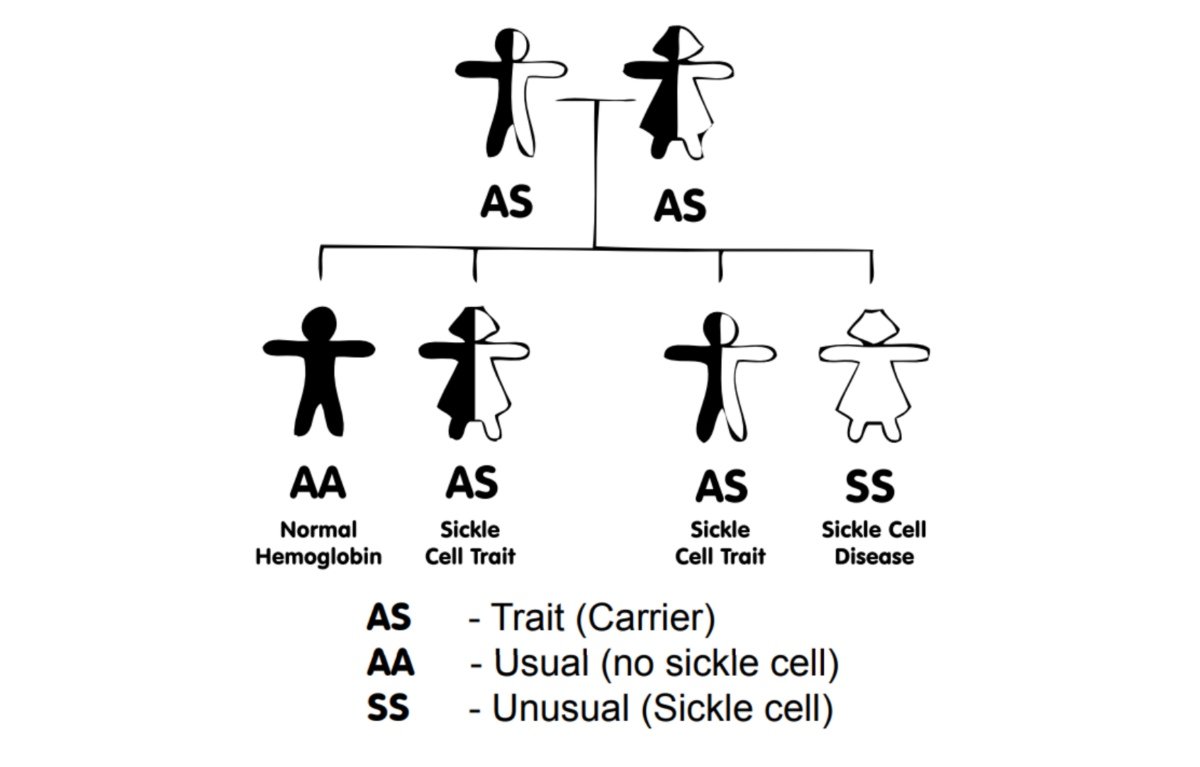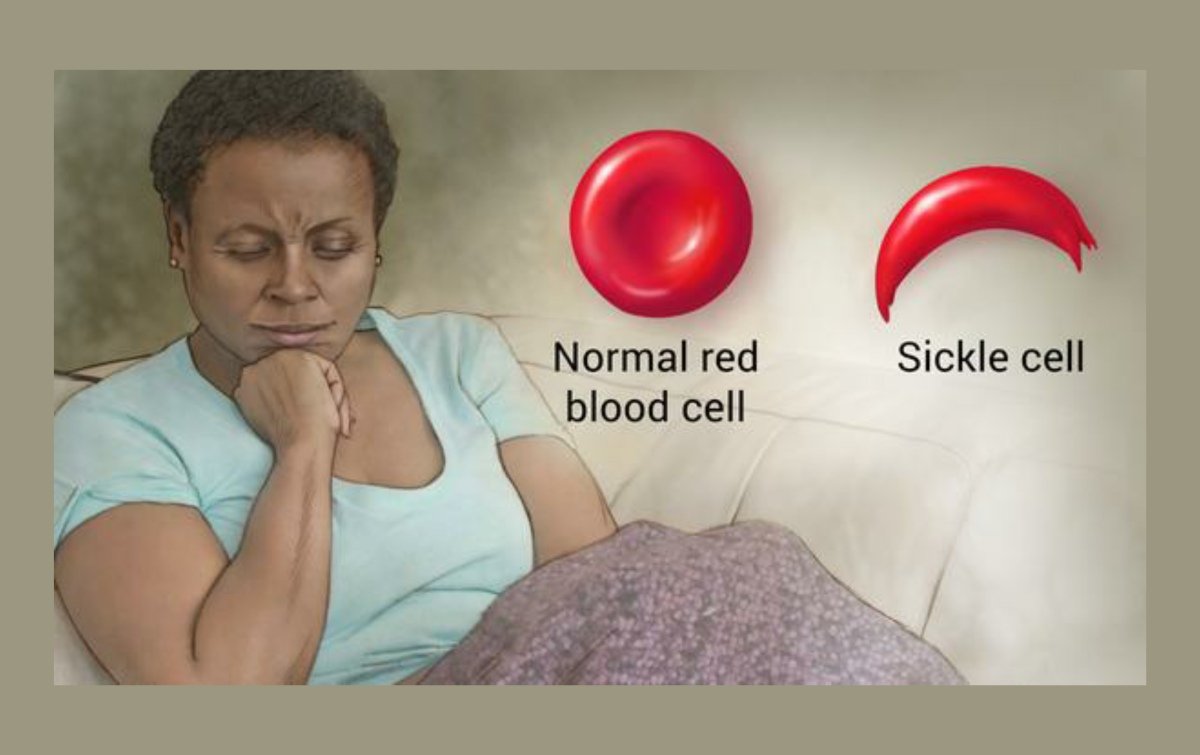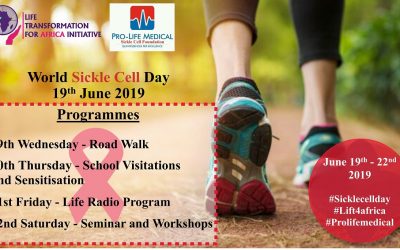What is Sickle Cell (SCD)?
Sickle cell disorders are a group of illnesses which affect your red blood cells. Sickle cell is a genetic condition, which means it is passed on from your parents and you are born with it; you cannot catch it from other people.
Sickle cell disorders causes your normally round and flexible blood cells to become stiff and sickle shaped, stopping the blood cells, and the oxygen they carry, from being able to move freely around the body and causing pain. This can cause episodes of severe pain. These painful episodes are referred to as sickle cell crisis. They are treated with strong painkillers such as morphine to control the pain.
People with sickle cell are also at risk of complications stroke, acute chest syndrome, blindness, bone damage and priapism (a persistent, painful erection of the penis).
Over time people with sickle cell can experience damage to organs such as the liver, kidney, lungs, heart and spleen. Death can also result from complications of the disorder. Treatment of sickle cell mostly focuses on preventing and treating complications.
Symptoms of Sickle Cell
Chronic (long term) anaemia – when there are not enough red blood cells or Hb in your body.
Unpredictable Pain (crisis) – When the blood vessels get blocked, it can cause pain and swelling in the area, also known as a crisis.
You may get tired easily or experience fatigue – constant tiredness, feeling weak or lacking in energy because of the anaemia.
Jaundice – yellowing of the whites of the eyes and skin.

The Sickle Cell Trait
Sickle cell trait is inherited when only one of your parents has passed on the sickle gene, and will never develop into sickle cell disorder. You do not have symptoms from sickle cell trait, so it is a good idea to have a blood test to see if you have sickle cell trait. If you have the trait, the majority of red cells in the blood are normal round shaped cells. Some sickle shaped cells may be present under certain conditions.
The trait is not an illness, but if you are planning to have children, then certain factors have to be considered.
If your partner does not have sickle cell trait, then any children you have will not have sickle cell disorder, but they could have the trait (50% chance).
If you and your partner both have the trait, there is a 25% chance that any child conceived may have sickle cell disorder and 50% chance they will have the trait. Find out more
The Sickle Cell Trait
Sickle cell trait is inherited when only one of your parents has passed on the sickle gene, and will never develop into sickle cell disorder. You do not have symptoms from sickle cell trait, so it is a good idea to have a blood test to see if you have sickle cell trait. If you have the trait, the majority of red cells in the blood are normal round shaped cells. Some sickle shaped cells may be present under certain conditions.
The trait is not an illness, but if you are planning to have children, then certain factors have to be considered.
If your partner does not have sickle cell trait, then any children you have will not have sickle cell disorder, but they could have the trait (50% chance).
If you and your partner both have the trait, there is a 25% chance that any child conceived may have sickle cell disorder and 50% chance they will have the trait. Find out more

OUR WORK
Sickle Cell Awareness Month 2019: “Breaking The Circle”
Sickle Cell Awareness Month 2019: "Breaking The Circle" Sickle Cell Foundation in collaboration with Life Transformation for Africa Initiative (LIFT4Africa) and Sickle Cell and Young Stroke Survivors joined the Global Community, Civil Societies and Organizations...
World Sickle Cell Day 2019
World Sickle Cell Day 2019: The Role of the Youth in Addressing the Prevalence of Sickle Cell Anemia in Nigeria June 19th every year is celebrated as “World Sickle Cell Day” all over the world by Civil Society Organization government bodies and other stakeholders. As...
GALLERY
Ways of Giving
Online donations are a simple and secure way to support our work.
GLOBAL GIVING
An individual donation – whether large or small – can make a powerful impact in the fight to save lives








